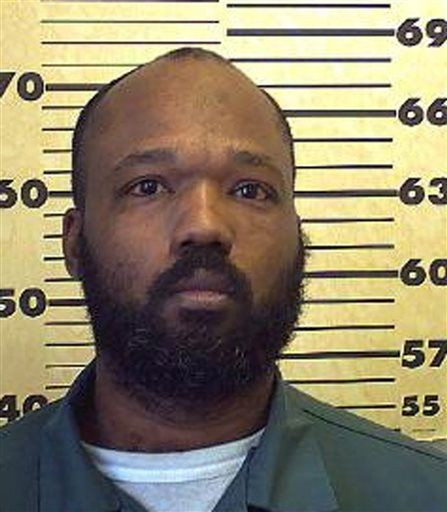Rikers Island Inmate With Schizophrenia Dies In His Cell After 7 Days; Death Follows Separate Case Of Fatal Mental Illness

Bradley Ballard, a Rikers Island inmate suffering from a mental illness, was found dead this past September after being locked in his cell alone for seven days. Ballard, who had been diagnosed with Schizophrenia, became the second mentally ill inmate to die in New York City’s main jail complex after a man passed away five months earlier due to suffocation from the 101 degrees his cell reached following a heating malfunction. Rikers Island has come under heavy scrutiny of late over its efficacy in handling inmates with special needs.
"He didn't have to leave this world like that. They could have put him in a mental hospital, got him some treatment," Ballard's mother, Beverly Ann Griffin, told the Associated Press. "He was a caring young man."
Ballard, 39, was first arrested back in 2004 for assaulting two employees at a New York law firm. He spent six years behind bars before being released and returning to his home in Houston, Texas. He was arrested again back in June after assaulting and exposing himself to a bus driver. The State Corrections Department in Texas sent him back to New York City for not telling his parole officer that he had left the state.
After spending 17 days in Rikers Island, he was moved to a Correction Department psychiatric hospital for 38 days. He returned to Rikers Island after the 38 days to serve his time in the jail’s mental observation unit, where inmates were allowed to roam free of their cells within a designated area for 14 hours a day. On Sept. 4, Ballard was confined to his cell after making a lewd gesture to a female guard. During this time, he reportedly was denied his medication, overflowed his cell by clogging the toilet, and stripped naked before tying a rubber band around his genitals.
Although corrections officers checked the outside of Ballard’s cell and had other inmates bring him his food over the course of the next few days, no one actually entered his cell to check on him. After spending around seven days confined to his cell, members of the jail’s medical staff were called to check on Ballard, who was too weak to move. He was pronounced dead on Sept. 11 due to what preliminary reports confirm was sepsis, a bodily infection. Ballard’s family said that, in addition to Schizophrenia, he was also diagnosed with diabetes.
Over the last eight years, the amount of mentally ill inmates serving time in Rikers Island has grown from 20 percent to 40 percent. Out of 12,000 inmates in New York City’s correction department, over a third suffer from bipolar disorder or schizophrenia. Experts who have doubts concerning a correctional facility like Rikers Island’s ability to handle mentally unstable patients who would benefit more from a psychiatric hospital setting, say that jail is ineffective in correcting their condition and can also exasperate symptoms including paranoia and anxiety.
"Correctional institutions are such a poor substitute for mental hospitals, which is what they're basically functioning as in our society," said Dr. Bandy Lee, a Yale psychiatrist specializing in the use of solitary confinement. "The problem is the correction setting is not fit to deliver the proper care, and in fact many of the settings exacerbate their symptoms."



























